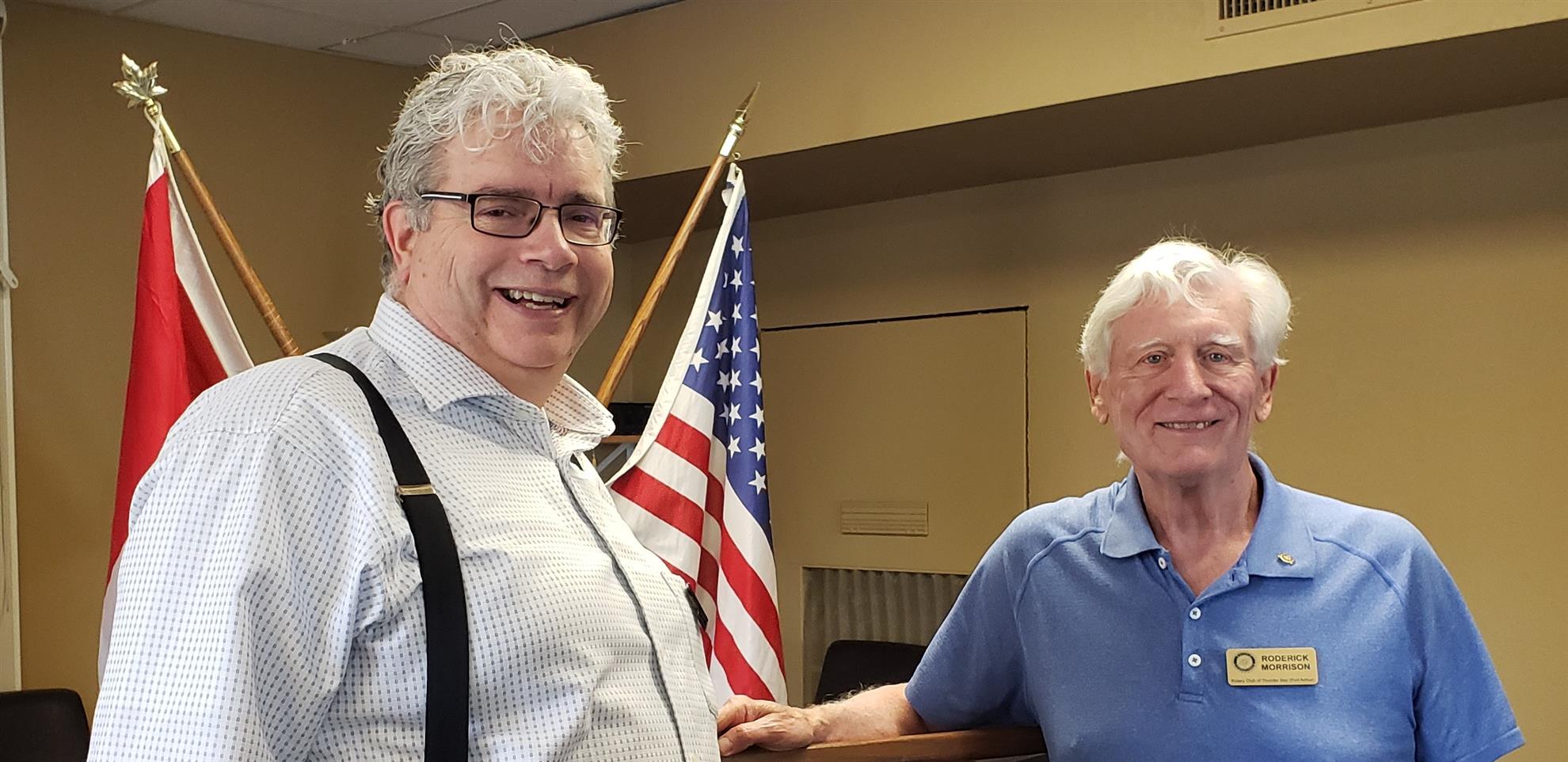Just imagine what could happen!
Brian Walmark gave us his Classification Talk on his experiences with Reconciliation and Decolonialization. He called on is to make Reconciliation a personal commitment as Canadians. He encourages us to walk boldly into the future of Reconciliation, in an energized and creative relationship between First Nations and Mainstream Society.

Brian Walmark is shown with President Rod Morrison.
As Canadians, we all need to acknowledge the mistakes that were made over the last century and a half. Everyone has a responsibility to learn for themselves about our historical relationship with Indigenous Peoples and the impacts of colonialism on them. We cannot depend on Indigenous Peoples to educate us on colonialism because they are way ahead of us on the decolonialization process and too busy on their own healing journeys and working to rebuild their communities and societies.
Brian’s father is a first generation Canadian. His mother was one of the first Indigenous Registered Nurses in Ontario. He is a Fort Severn band member and has extensive experience working with NAN, tribal councils and First Nations in Ontario’s far north. He and Louise have a lovely daughter, Maija, who is now becoming part of the Rotary family. He is very proud of his daughter but had to leave the best stories about her untold because, as Maija herself told him, “Dad! Those are MY stories.” We look forward to hearing from Maija when she shares her adventures at RYLA at our weekly meeting later in August.
Brian spoke about decolonialization and especially about the process of decolonialization of the mind. Many things for example that we think as “traditional” are not traditional at all but myths created by academics, so-called “Indian experts” and Hollywood moviemakers. Many Indigenous peoples are exploring all aspects of the culture and values through the lens of decolonizing the mind even the Nanabush legends.
Brian brought us through the changes in thinking in some of the Indigenous communities where there is less patience and more action –including efforts to “decolonize” the mind.” Many people refuse to accept the mental limitations which colonialism has imposed on their thinking. The leadership is no longer waiting for Indian Affairs or other government agencies to say yes or no but are refusing to accept limits from self-created schedules in Ottawa. There is value to learning from the Western educational system in terms of science and mathematics but Indigenous education must be grounded in the traditional teachings, language, culture and the teachings of the Elders. This creates a foundation for the rebuilding a better world for all people in Canada.
Brian called on his fellow Rotarians to share the skills that they have developed as professionals in education, health and business where appropriate and when invited to by the Indigenous leadership. We do this around the world why not closer to home. How much better would it be if we all brought our various skills and knowledge to work in and with remote communities such as Fort Severn so that they can thrive on their own terms. Just imagine what could happen!
Thank you, Brian for a great Classification Talk that was truly inspirational!